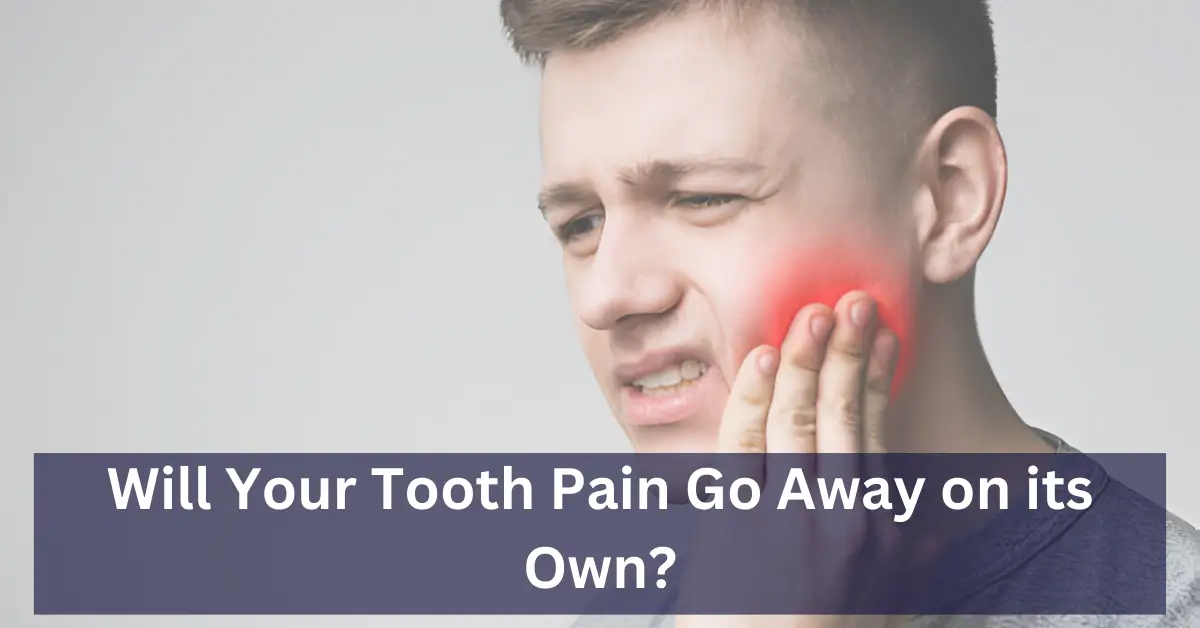When I first experienced a toothache, I wondered if the pain would simply go away on its own. The discomfort was persistent, and my gums felt irritated. I learned that while some minor issues might resolve without treatment, it’s often crucial to see a dentist. Tooth pain can be caused by an infection or injury, leading to symptoms like throbbing or sharp sensations. Ignoring these signs could make things worse. The pressure from biting or poor dental hygiene can also contribute to the problem.
A thorough checkup helps identify the pain source. Your dentist will examine your gum tissue and nearby areas to develop a treatment plan. This may include addressing unhealthy habits or fixing damage to prevent further problems. Acting early can ease discomfort and avoid ongoing issues. Understanding causes and maintaining good hygiene are crucial for preventing future issues.
Don’t ignore that toothache. While minor pain might resolve, tooth decay and gum disease usually need a dentist. I’ve learned the hard way: better safe than sorry. Improve oral hygiene, but if pain continues, get an exam. An untreated infection can become a medical emergency. Trust me, a quick visit beats significant problems later.
Will Your Tooth Pain Go Away on its Own?(Short Answer)
What Is Tooth Pain?
Tooth pain can be incredibly difficult to endure, especially when it becomes severe. As someone who has dealt with toothache before, I can tell you it’s a common symptom of various dental issues. Whether it’s due to tooth decay or an injury, the pain often signals an underlying problem.
The cause of this discomfort can vary, but the experience is usually quite challenging. When faced with such problems, it’s crucial to pay attention to the symptoms and seek professional help if needed. Ignoring these signs can lead to more significant dental problems down the line, including complications with teeth stitches.
Common Symptoms Accompanying Tooth Pain
The underlying cause of your dental issue may bring about additional symptoms that occur with tooth pain.These symptoms include:
⦁ Headaches
⦁ Pain when chewing
⦁ Sensitive teeth
⦁ Discharge or bleeding from the gums
⦁ Swollen gums
⦁ Bad breath
⦁ Fever
⦁ Swollen glands
⦁ Bad taste in the mouth
• Broken tooth or lost filling
What Causes Tooth Pain? Here’s What You Should Know
Tooth pain can have various causes. Sometimes, it’s reversible and may go away without treatment due to minor things like temperature sensitivity. However, irreversible pain might require needed intervention. The severity of pain isn’t always the best indication of seriousness, but it can motivate us to seek help. Although a lot of pain can seem alarming, consulting a dentist is best if it persists.
Gum Disease
Tooth pain can sometimes resolve on its own, but often, dental issues like gum disease are the culprits. Poor hygiene leads to plaque buildup, causing gingivitis where gums become swollen and inflamed. If untreated, this infection can worsen, affecting soft tissue and bone around the teeth. The severity of pain depends on how advanced the gum disease is. Regular dental care is key to preventing and managing this pain.
Bruxism
Teeth grinding, or bruxism, often occurs during sleep and can lead to tooth pain. This habit wears down the enamel, the hard outer layer of the tooth, resulting in increased sensitivity and damaged areas. Over time, this can contribute to tooth decay as bacteria from the mouth create cavities. If poor dental hygiene is practiced, plaque builds up and hardens into tartar, making it more difficult to clean the teeth effectively.
The acids produced by bacteria can further attack the tooth, leading to decay that spreads into the inner layers. Addressing bruxism and maintaining good dental hygiene are crucial steps in preventing these common dental problems. Additionally, reducing sugars and starches in your food can help minimize the risk of cavities and the pain they cause.
Sensitive Teeth
Tooth sensitivity can cause pain when consuming cold or hot foods, like ice cream. This discomfort often results from worn-down enamel or exposed root surfaces. Proper dental care is essential to reduce sensitivity and protect your teeth.
Someone might have naturally thinner enamel, but your enamel can become worn down due to:
⦁ Brushing your teeth too hard
⦁ Using a stiff toothbrush
⦁ Grinding your teeth at night
⦁ Eating or drinking acidic foods & beverages regularly
Tooth pain from heightened sensitivity often feels sudden and sharp. This sensation can occur during activities such as brushing your teeth, eating, drinking, or when exposed to cold air.
Tooth Abscess
A tooth abscess is a painful infection caused by bacteria invading the layers of the tooth, often due to decay from a poor diet high in sugar. This damaging process affects the blood vessels, nerves, and tissues inside the tooth, leading to swelling and intense pain.
The gum tissue around the tooth can also become inflamed. Without proper treatment, the abscess can drain into other areas, causing serious health complications. Maintaining good dental hygiene and a balanced diet is essential to prevent such issues.
Tooth Pain? Here’s What You Need to Do Right Away!
When you experience tooth pain, it’s important to act quickly to prevent a minor problem from becoming more serious. Initially, you can treat a toothache with over-the-counter medications like 1000mg of Tylenol and 600mg of Advil.
However, visiting your dentist is a necessity to properly identify the cause and recommend a treatment plan. Make sure to record when the pain occurs, its causes, how long it lasts, and the type of pain you’re experiencing. This helps in addressing the issue effectively and prevents the situation from getting worse.
Treating a Toothache at Home
When a toothache strikes and you’re unable to see a dentist immediately, you might find some comfort in home remedies. While these quick fixes can provide temporary relief, it’s crucial to remember they won’t solve the underlying dental issue.
Pain Medication
As a dentist, I’ve seen tooth pain temporarily eased with over-the-counter pain relievers. Ibuprofen (Advil) and acetaminophen (Tylenol) can relieve pain and inflammation. Always follow the recommended dosage on bottles and check if your medications contraindicate with these pain relievers. While they offer quick comfort, they’re not a long-term solution. Persistent pain requires professional care.
Cold Compress
For quick relief, try cold therapy. Wrap ice in a towel to create a cold compress. Apply it to the affected area for 20 minutes, repeating every few hours. This simple technique can help reduce swelling and ease pain until you can see a dentist.
How Dentists Treat Toothaches? Find Out Here!
The cause of your tooth pain will influence how your dentist treats it.
Cavities
Cavities are a common cause of toothaches due to enamel erosion. Treatment involves removing decay and filling the area with materials like composite resin. For larger cavities, dentists may use crowns to restore the tooth’s structure. This process effectively addresses pain by protecting the tooth’s sensitive inner layers.
Root Canal
Root canals treat severe decay or infection in the tooth’s pulp. The procedure involves removing infected pulp, cleaning the canals, and filling them with biocompatible material. Modern techniques and anesthesia make root canals more comfortable than their reputation suggests.
Stuck Food
Food particles trapped between teeth can cause pain. Dentists remove them using specialized tools like dental floss or interdental brushes. They then clean the area to prevent infection and recommend better oral hygiene practices.
Effective Ways to Prevent Toothaches
Because most toothaches are caused by tooth decay, good oral hygiene practices can help prevent toothaches:
- Brush your teeth regularly with fluoride toothpaste.
- Floss your teeth at least once a day.
- Visit your dentist twice a year for a thorough cleaning.
- Eat low-sugar foods and consult your dentist about sealants and fluoride applications.
How Dentists Effectively Treat and Relieve Toothaches
To address a toothache, a dental professional typically focuses on identifying and resolving the root cause. They conduct a comprehensive oral examination, often utilizing X-ray imaging to pinpoint the issue. Potential treatment options may encompass:
- removing decay and adding a filling
- replacing old fillings
- undergoing root canal treatment, which treats tooth pulp with an infection
- undergoing tooth removal
Preventing toothache
Ways to prevent toothache include:
- Practice dental hygiene by brushing your teeth twice a day, flossing daily, and using mouthwash to maintain oral health.
- Avoid sugary foods and drinks to reduce the risk of cavities and tooth decay.
- Refrain from smoking and other activities that can lead to dental problems.
- Schedule and attend regular dental checkups to catch and address any potential issues early.
When to consult a dentist
If you’ve ever experienced a toothache, you know it can be quite bothersome. While some home remedies might offer temporary relief, it’s crucial to recognize when the pain might signal a more serious issue. From personal experience, ignoring persistent dental pain can lead to complications like gum disease or even a dental abscess.
An abscess is particularly concerning because it stems from a bacterial infection reaching the dental pulp, the innermost part of the tooth. Therefore, if your tooth pain doesn’t subside after a couple of days, it’s wise to seek treatment from a dentist. They can address the root cause and prevent further issues, ensuring your oral health remains intact.
Conclusion
In conclusion, tooth pain is often a sign of underlying dental issues like decay or injury, and it’s important not to ignore it. While minor discomfort may resolve on its own, persistent pain typically requires professional attention to prevent more serious problems. Maintaining good oral hygiene, such as regular brushing, flossing, and dental visits, can help prevent toothaches.
However, if pain persists, seeking timely dental care is essential to avoid complications. Ultimately, early intervention and proper care are key to maintaining oral health and avoiding more severe issues.

